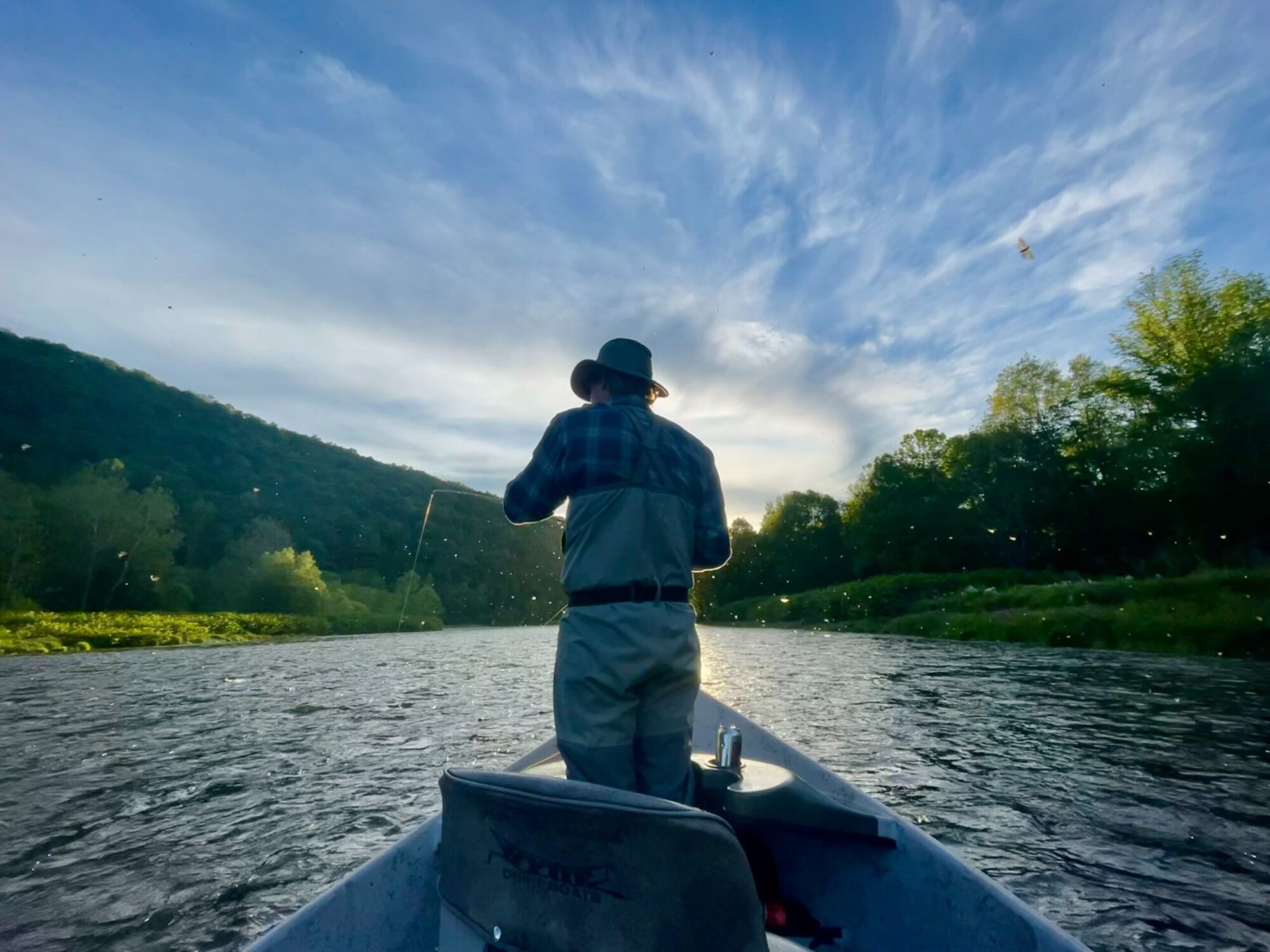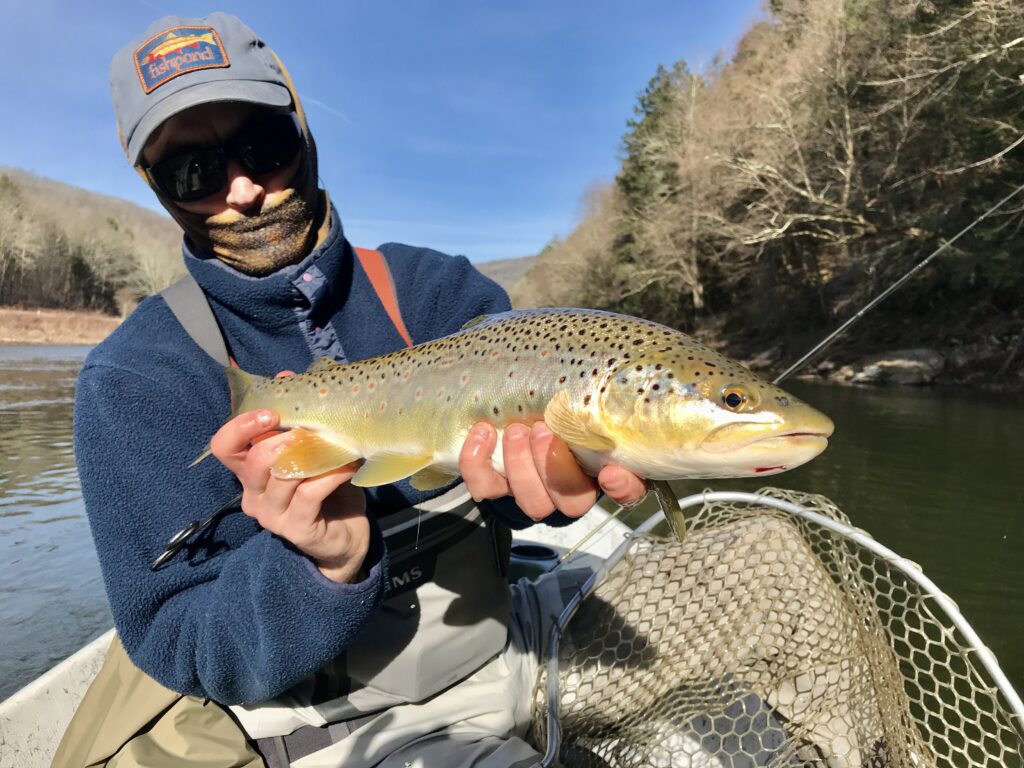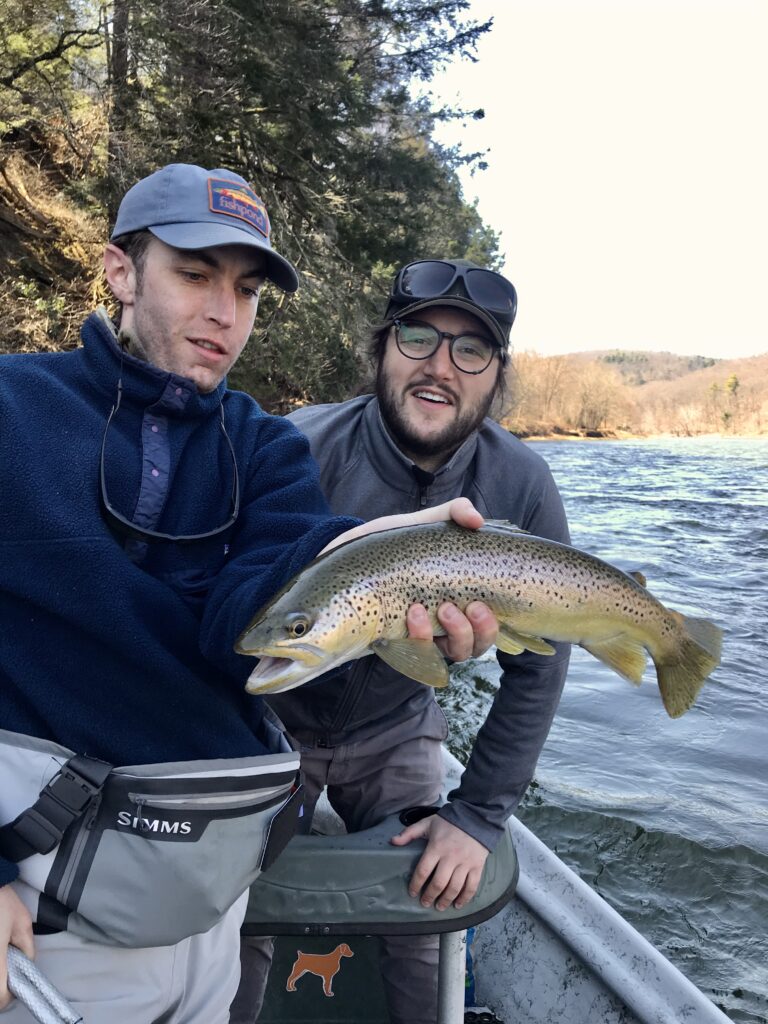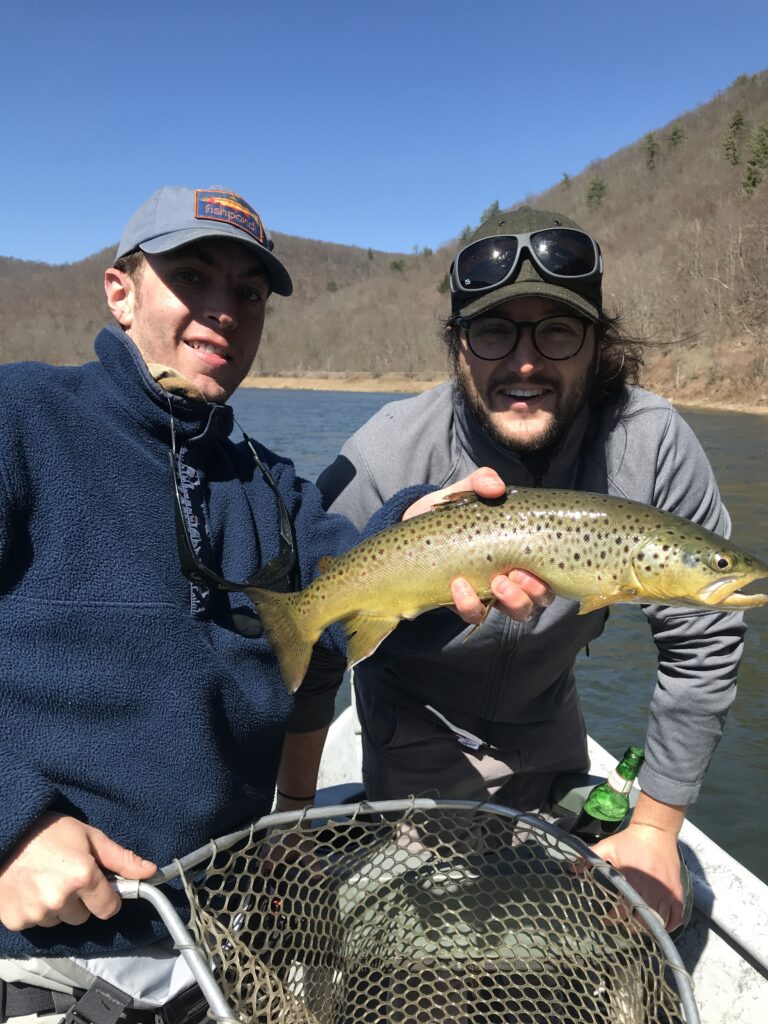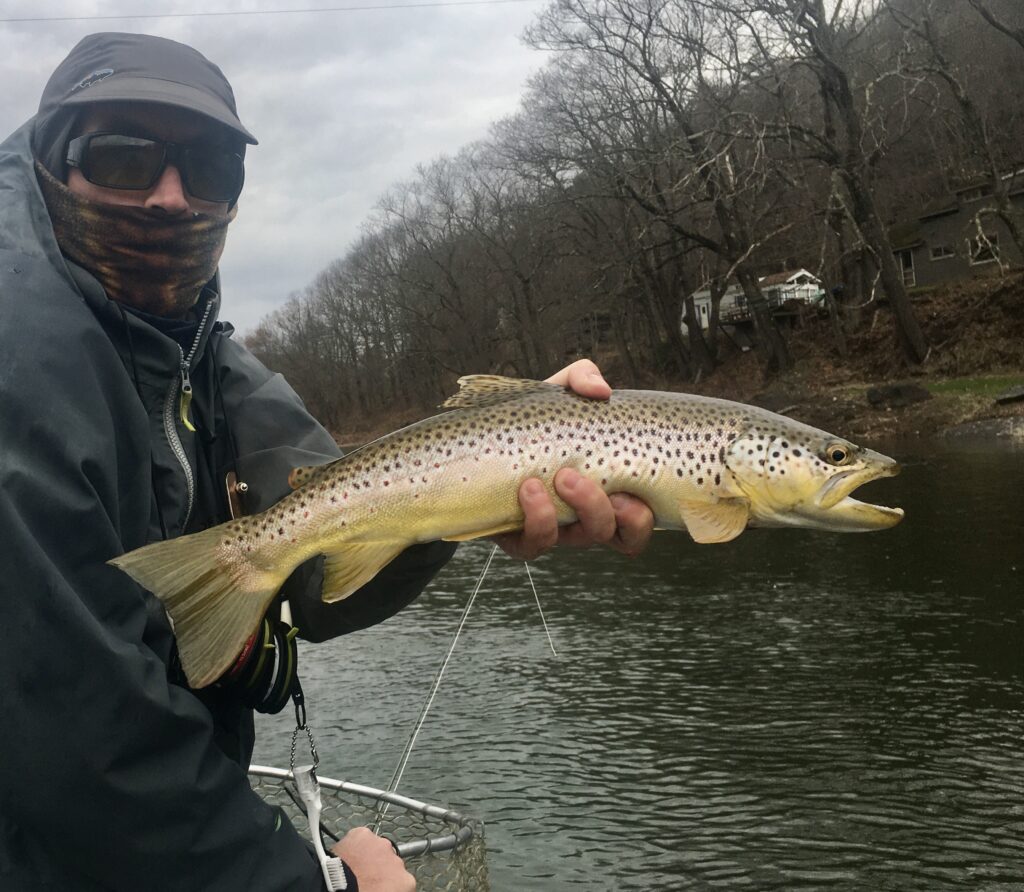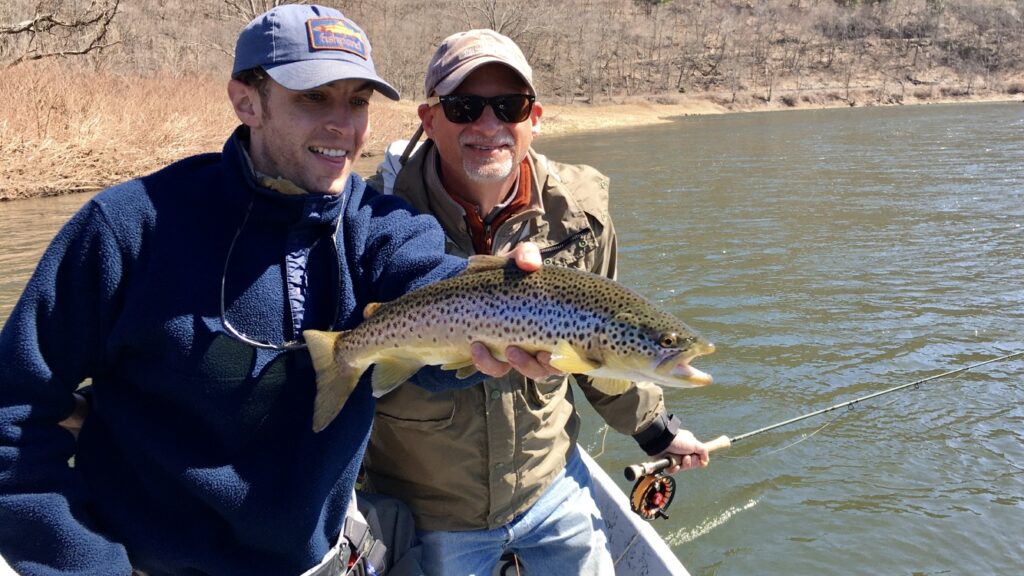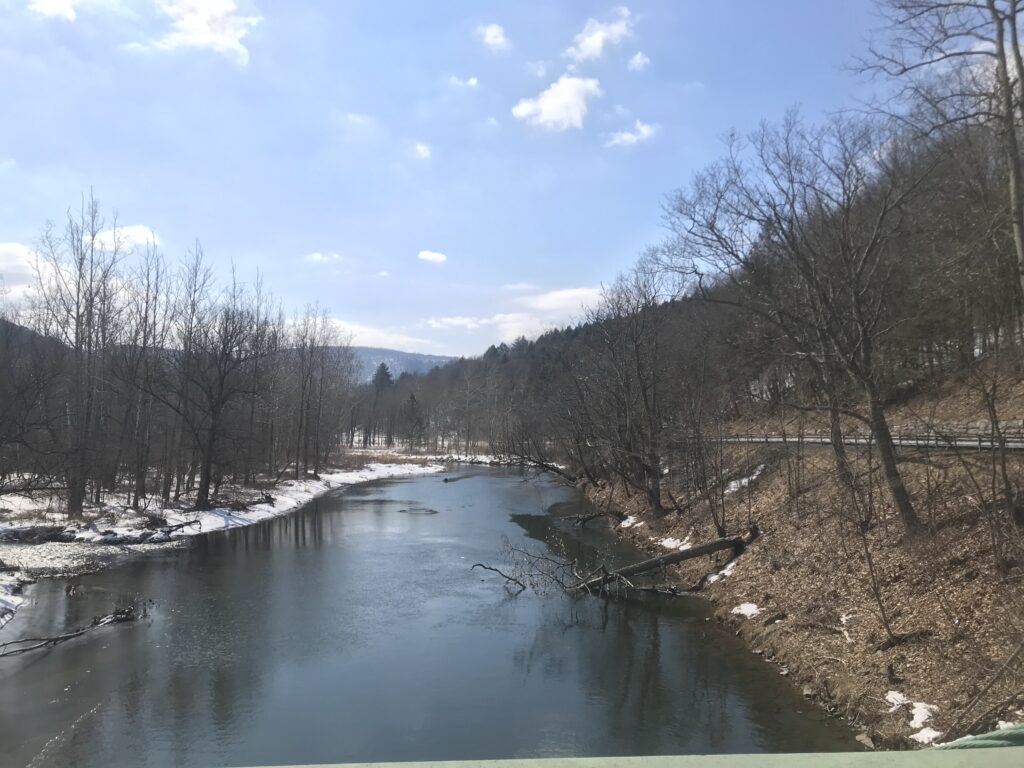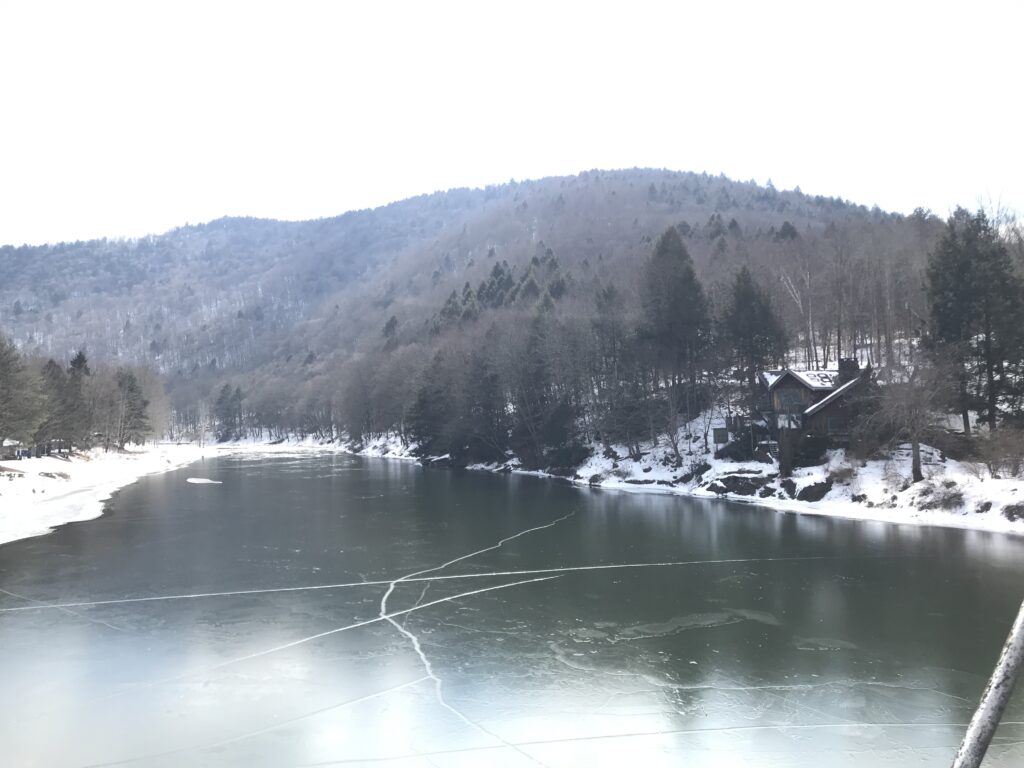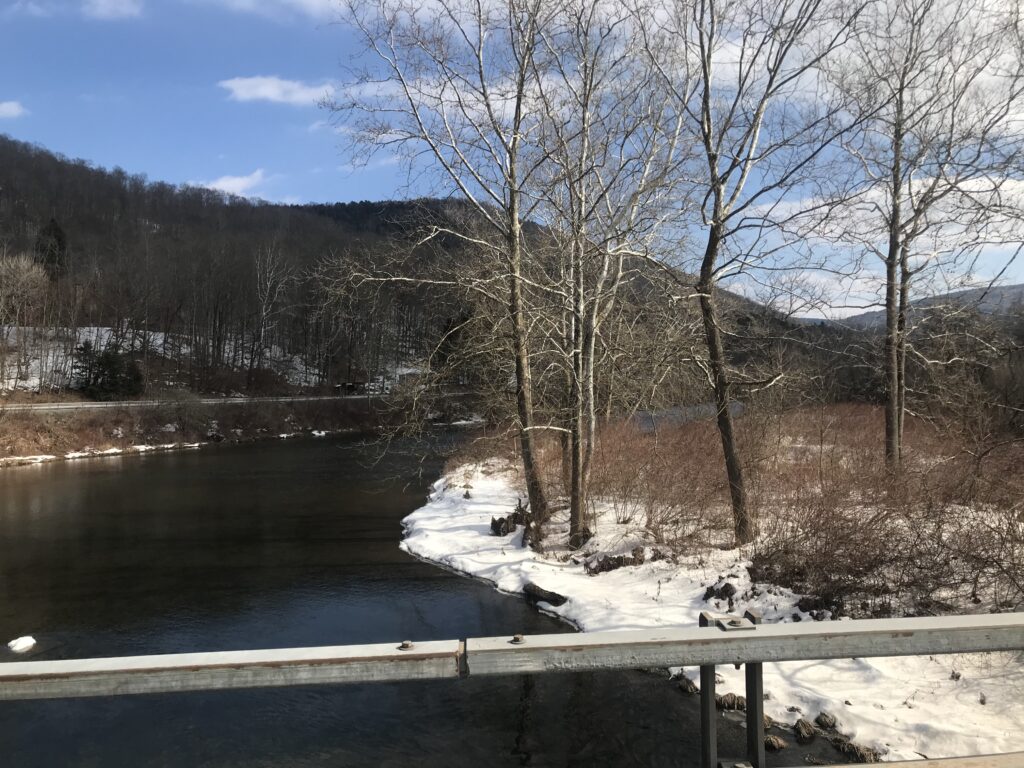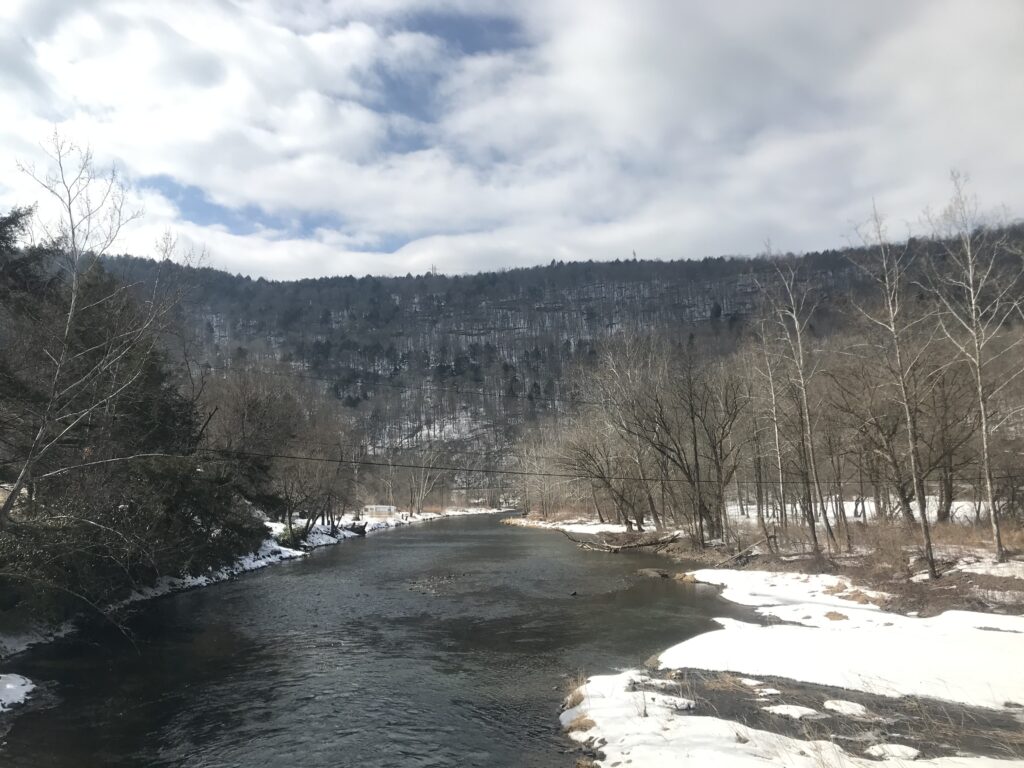This is going to be short. We took advantage of the warm weather the last few days. Today we got 2 inches of snow and the next few are going to seem like winter. On the water until Sunday. The pictures below are from the past two days. Happy opening day! Pick up a piece of trash today today to get the fish Gods on your side for a year!
River Report – Catskills Fly Fishing 3/27/2021
Catskills River Report
Today’s river report is for Saturday March 27th 2021. Opening Day is only 5 days away and the excitement is building. My phone has been a buzz all week. The warmer temps and bright sun only increases the itch.
This past week I drove all 5 rivers. I’ve seen fish rise on two and some winter anglers sprinkled around. A few of the gauges crept in on 50 degrees but don’t let this fool you. We have some cold nights still ahead.
River Report Weather
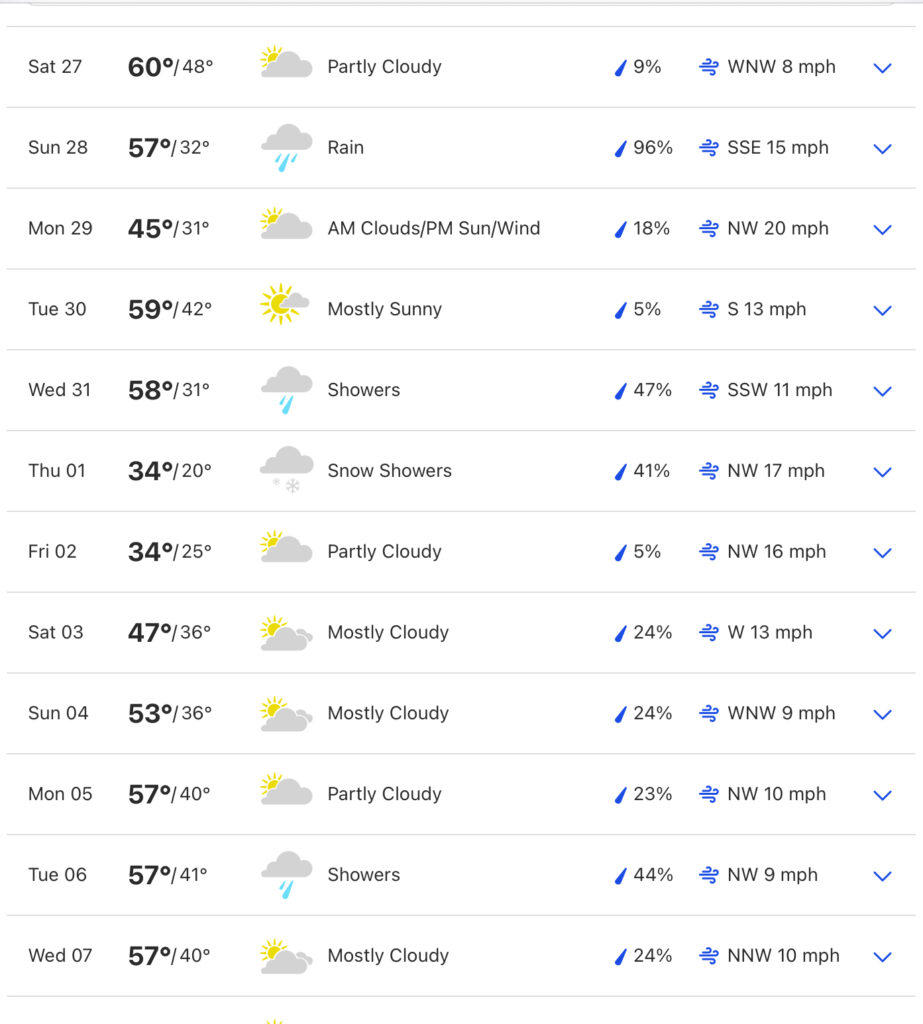
As you can see over the next ten days we will be in sap making weather. The warm days will pop bugs, but will the wind call it off? Also, don’t be surprised if we don’t get another snow storm. This is the Catskills.
Reservoir Levels for NYC/NYS Catskills
Currently the West Branches’ Cannonsville Reservoir is 97% full. The East Branches’ Pepacton Reservoir is closing in on 93% full. As of today the Cannonsville started the spring step up by releasing more water. The state delicate balances the flows and uses the dams to also control spring floods. The do this when there is more water entering the exiting the reservoirs.
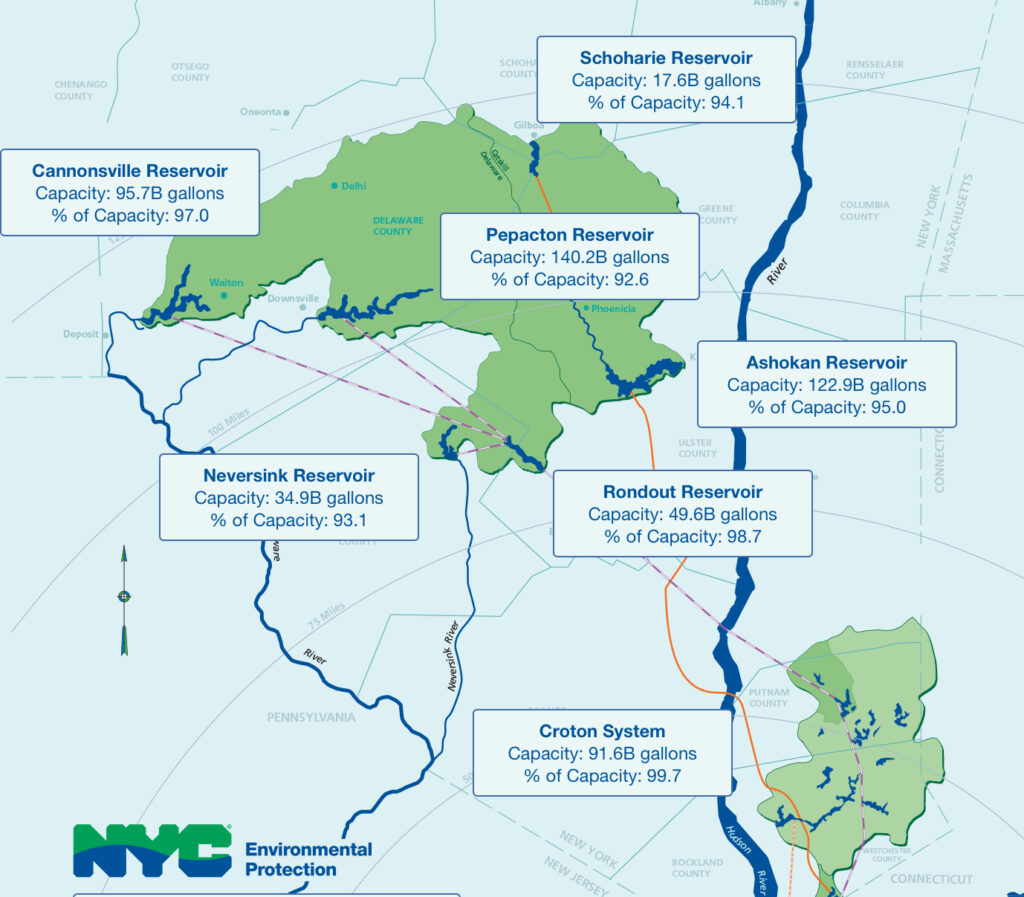
As you see below, the state has began staging spring releases. Could this be the year we see some baitfish spill over the dam? We can only hope.
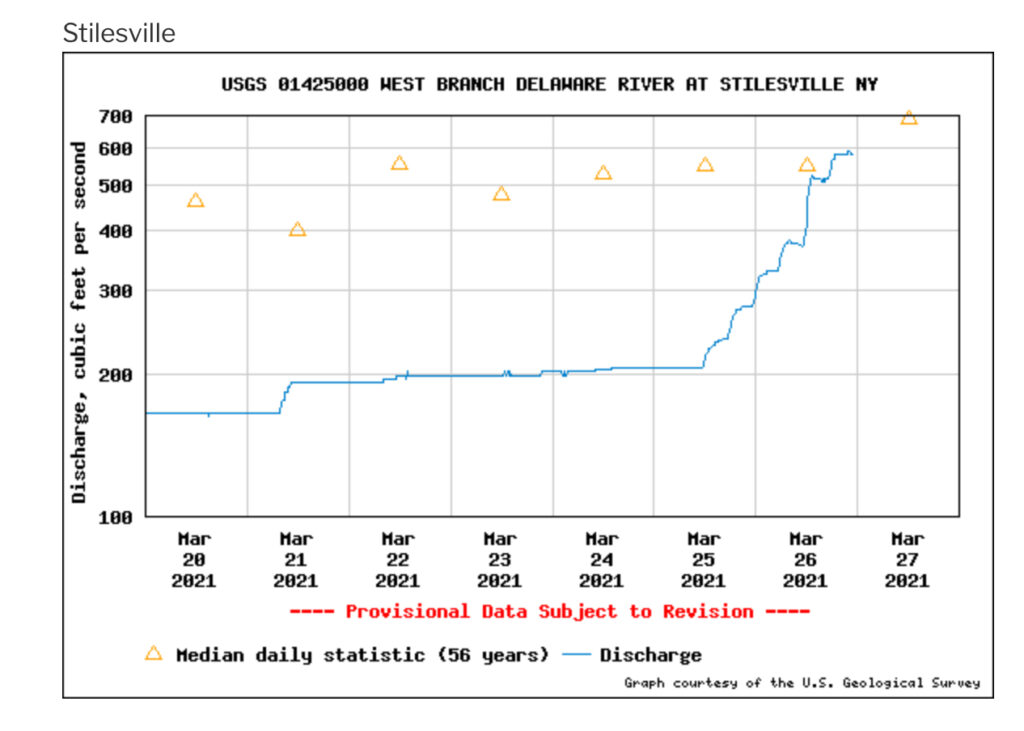
The Beaverkill is way to high to fish. It is very dangerous at this flow. Some try to pick off the edges but its to dangerous. I wouldn’t risk it. I could possibly see a washout on opening day for the smaller rivers. It all depends on how much the warmer days thaw the hills. It also depends on possible precipitation.
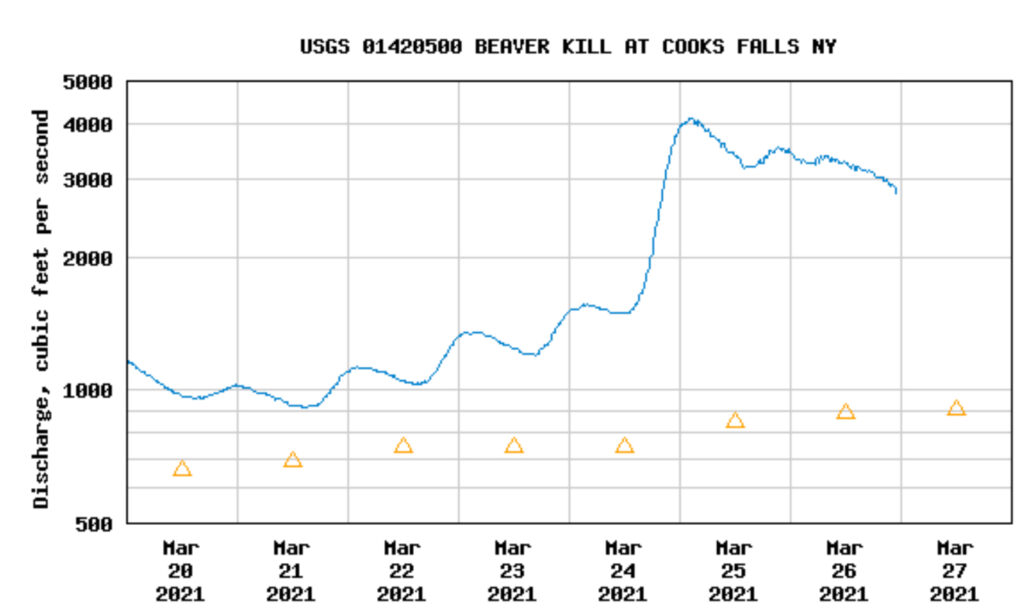
Don’t forget! The day before opening day its the big return dinner at the Rockland House in Roscoe. It is put on by the Catskill Fly Fishing Museum. Good people and great food put on by Tommy and crew.
Catskill Mountains First Snow Melt
Yesterday I has my first trip with three awesome guys. We had an uncle with nephews in town and they took advantage of the warm temps and sunny skies. This winter there were parts where it seemed the sun had a mask on. It was depressing and there was no hope. Yesterday was the hope lol and with daylight savings this weekend ahhhhh it feels good.
Catskill Snow Melt
Earlier this week when looking at the weather I thought the snow would release from the hills faster than it did. On yesterdays trip, the water was “perfect” looking. However, the temp was still winter cold. Every year since I was about four I always trick myself with optimism on that first warm day. Regardless of fish to hand it was nice to be in the sun.
It was a rewarding trip in the fact that the two younger nephews (who were smart as all hell) picked it up fast. We focused on the slow moving water with depths around 2-5”. The boys learned the indicator cast mend and cover water method. Before we made our first cast we checked the rocks to see what was active. I was proud of how they handled hooking and losing fish and the determination to keep going. We hooked 3 early on before we grasped the line management. If those boys hooked them in the end of the day when their skills were peaking it would have been a wet net day.
After we wrapped up I drove past the upper west branch. It was just after 5pm and Quagua Creek and the Deposit spiller were both shooting mud. I realized then that the first thaw was upon us. After checking the charts it was true. See the graphs below. This is the next day March 12 at 4:30pm.
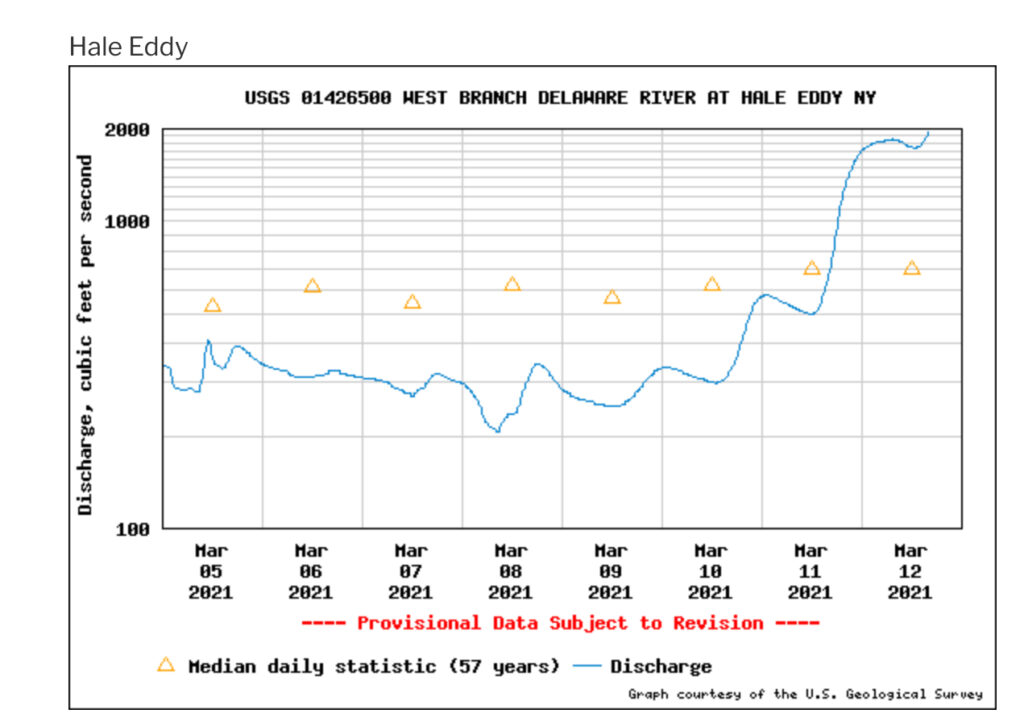
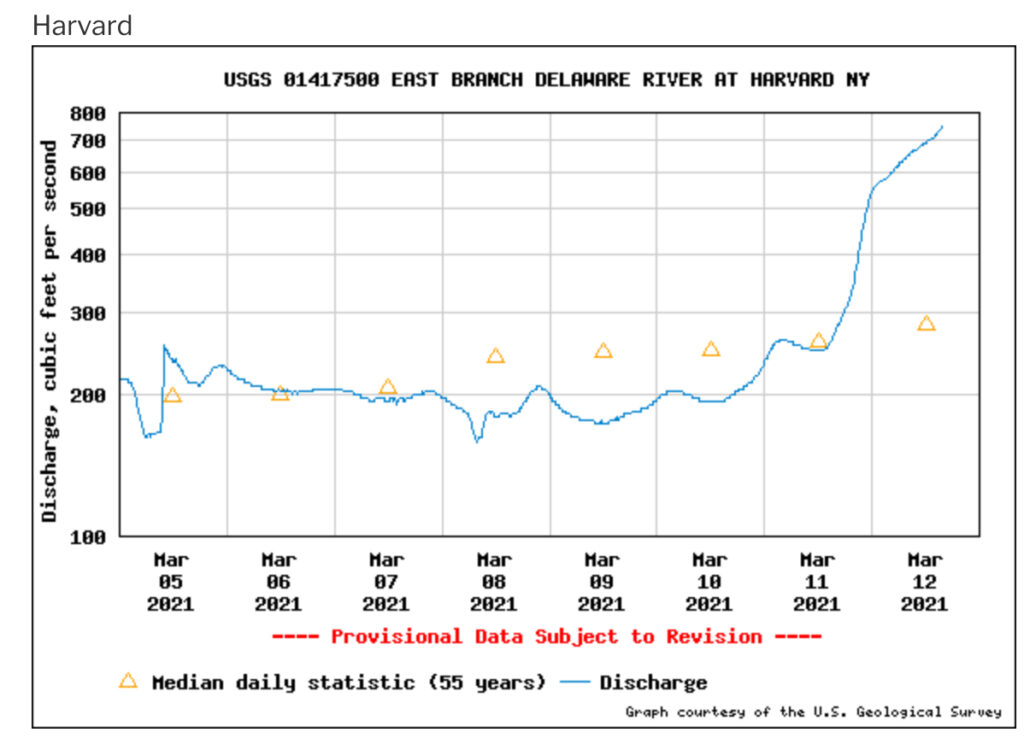
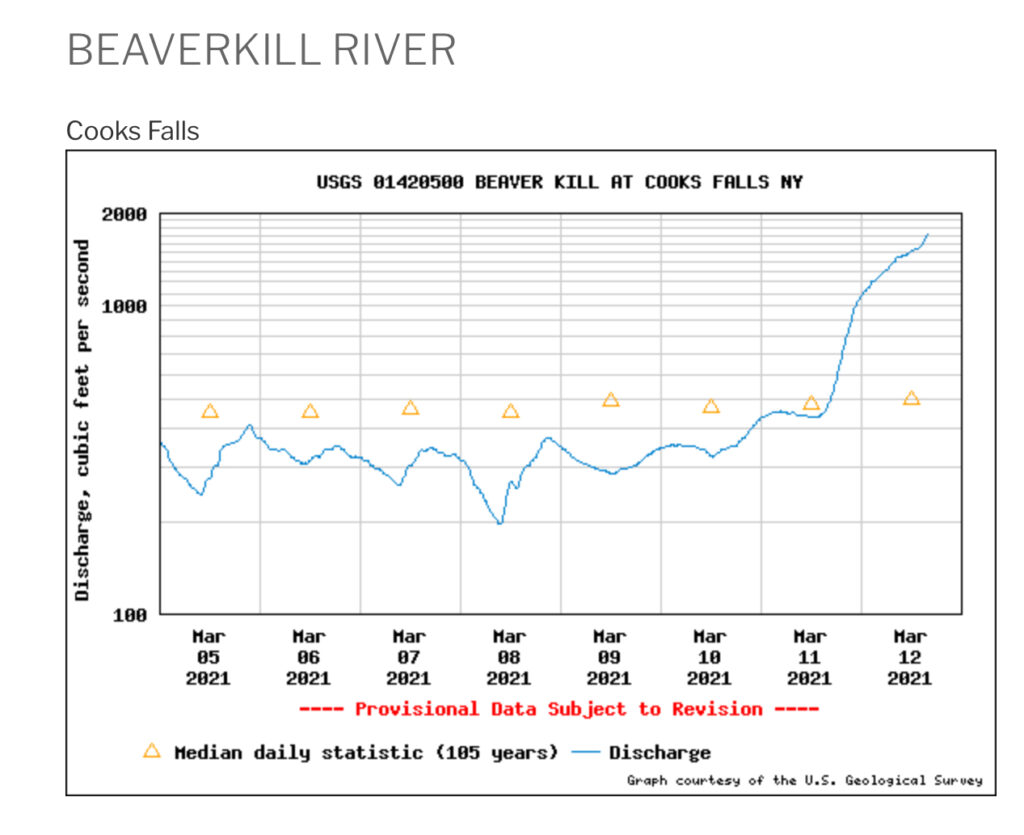
As you can see all of the rivers both freestones and tail waters shot up. The Beaverkill and Willowemoc are chocolate. This should slow down as the cold nights come back upon us. As for the tail waters the melt hasn’t even really begun.
Today I drove around Walton, Margerettville and Andes. The snow pack is still thick in the hills above the reservoir. THIS is the snow you should be planning on during the warm spring days. The state dropped the Pepacton and Cannonsville reservoirs about a month ago. This should catch the estimated snow pack in the hills and allow for a safe release downstream of the Downsville Dam.
